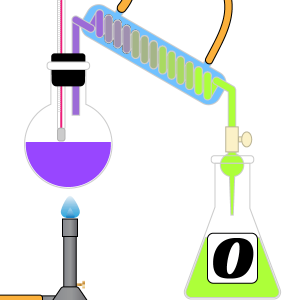
Chemistry is a branch of science that covers the composition, structure, and properties of matter. It’s one of humanity’s oldest disciplines, yet it still holds many secrets and surprises. The study of chemistry is essential to understanding how the world works and provides the foundation for many other fields from biology to medicine.https://safrole.com/knowledge-base/
What is Chemistry?
At its core, chemistry seeks to understand the behavior of atoms, molecules, and compounds. This includes their formation, interactions, changes, and levels of energy. Its primary goal is to develop mathematical models and equations that explain the structure and behavior of elements that make up our universe.
Chemists analyze the composition of substances, or “matter,” to better understand them and to find new ways to use them. For example, chemists can create and analyze medicines, test soils for toxins, find new sources of renewable energy, and develop materials needed for the construction of everything from buildings to spacecrafts.

Understanding the Basics
Chemists use many tools to study the physical and chemical properties of elements and compounds. Of these, the periodic table is perhaps the most well-known. It lists all known elements in order of atomic number and shows how they interact with one another. By using the periodic table, chemists are able to determine the properties of an element such as its boiling point, melting point, density, and other characteristics.
In addition, chemists are able to use the principles of quantum mechanics which investigates the behavior of particles on a subatomic scale. Quantum mechanics is the foundation of modern chemistry and provides insights into the behavior of atoms and molecules which allow chemists to better understand and predict the behavior of the substances in the universe.
Chemical Reactions
Chemistry also studies the reactions between different molecules. These reactions can be understood by looking at the composition of substances and the amount of energy required for them to react. By understanding the chemical structure of a molecule, chemists can predict how it will behave when mixed with other substances and design what are called “chemical pathways” to convert one substance to another.
Reactions can take various forms, ranging from simple single-molecule combinations to complex multi-step pathways. Understanding the behavior and energetics of these molecules allows chemists to artificially synthesize new compounds and create entirely new materials. From drugs to plastics, their applications are vast and continue to expand.
Exploring Chemistry Further
The study of chemistry has made many of the modern advances possible. From pharmaceuticals to energy production, chemists have unlocked a wealth of knowledge that continues to help shape our world. To learn more about the wonders of chemistry, head over to https://safrole.com/knowledge-base/ where you can find a wealth of resources, articles, and books on the subject.
Chemistry is the science of matter; its study of how matter is composed, the way it interacts with other matter and energy, and how it changes. It studies the properties of chemicals such as their atomic structure, color, melting point, boiling point, and solubility. It also studies the reactions of chemical compounds, their evolution over time, and the transfer of energy and matter during these reactions. Chemistry can explain phenomena such as combustion, corrosion, and ionization, as well as the complex behavior of compounds within living organisms. Chemistry is also closely related to other scientific fields including biology, physics, and earth and environmental science.


